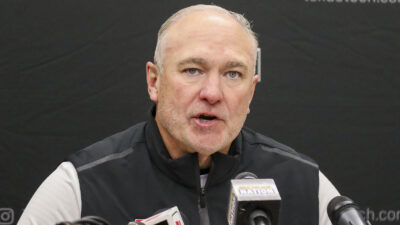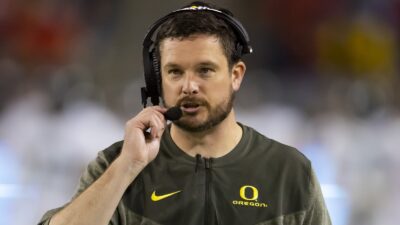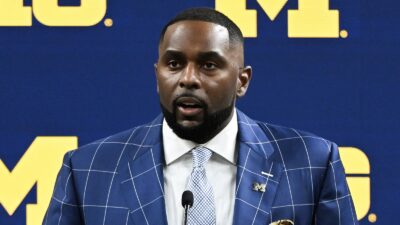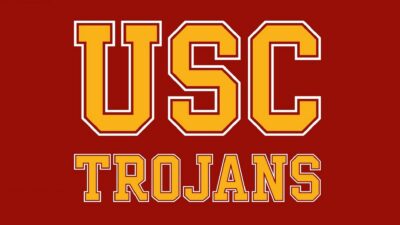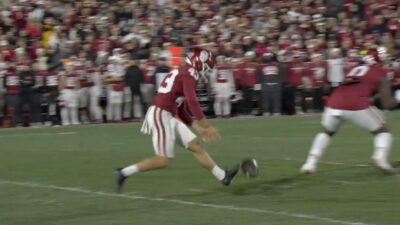
It used to be that visionaries like Joe Isuzu and Cal Worthington were just cornball pitchmen whose sole purpose was to hawk underpowered automobiles to the unwitting American public. Who knew there would be a day when they would be bankrolling the top college programs in the nation, helping to secure the latest star quarterback?
If there were a meter for the level of impropriety in college sports these days, the NCAA would need to consult Nigel Tufnel, because it would go to 11. Ever since SMU started the Cash for Clunkers program back in the 1980s, the arena of amateur athletics has been on some sort of glorified barter system: rush for 1500 yards, and well give you the finest American cars Japan has to offer. Do 2 bedrooms, 3 bathrooms sound fair for a national title?
The latest SWAG to raise a red flag concerns Ohio State. Back in December, an investigation into a disreputable owner of a tattoo parlor — what, were you expecting the guy owning a business like that to wear a top hat and monocle? — revealed that star quarterback Terrelle Pryor and several other players on the Buckeye football team had been receiving improper benefits from said business. (It’s a good thing that Andrei Kirilenko didn’t attend college in the United States.) The NCAA was so horrified by the amount of cash and discounted tattoos that it allowed the guilty players to indulge their sweet tooth by participating in the Sugar Bowl. The investigation did not mention how much the tattoos were marked down or what they were of — how much can an image of George Plimpton on one’s buttock actually cost? — but college’s governing body came down on these purveyors of body art, doling out suspensions, beginning with the start of the 2011 season.
The ignominy culminated with Jim Tressel’s resignation last week after he had signed an NCAA compliance form in September saying that his athletes were, to his knowledge, clean as a whistle and sharp as a thistle. Tressel might have been forgiven by some people living outside the city limits of Columbus if that’s where it ended. After all, it’s hard to keep tabs on everybody. Heck, I can’t even remember some of the stuff that happened to me in college, and I was there. Plus, that compliance form ranks up there with one of those grade-school field trip releases that requires parental consent; no one really reads them, they just sign. The only problem was that there was evidence that Tressel knew of the tattoo taboo months earlier. Folks in Ann Arbor would be cheering the latest developments in the Columbus dumbness if there faces still weren’t turning a shade of blue and maize after holding their breath following an NCAA investigation into Rich Rodriguez and the Michigan football program in 2010.

Such high-profile chicanery has been the rage in college football since the NCAA imposed the “Death Penalty” on the Southern Methodist University Mustangs football team in 1987 (and that was BEFORE they were penalized). That took place after it was revealed that the team’s players were being paid better than the dean’s stenographer and were driving brand new cars. (Perhaps that’s why they call them the Mustangs.) Though, the wild horses couldn’t drag Mick Jagger away, they certainly worked their magic on a number of recruits that signed on with the Dallas school during the 1970s and 80s. More recently, the NCAA came down on USC quicker than the 0-60 speed on OJ Mayo’s ill-begotten sports car, or, barring that, the escrow period on Chez Reggie Bush, which culminated in USC being stripped of their national championship from 2004 this week. Football is by no means the only D student in the bunch. College’s governing body has a long list of institutions and sports who have been made to sit facing the corner. The death penalty, a punishment so harsh that the writers of the Bible might have reconsidered their text, has even been applied on a Division II men’s soccer team and Division III men’s tennis team.
The outcry generated from this latest bit of ne’er-do-wellism is sure to reignite bellowing that college football’s system is unfair in light of the fact that the BCS profits off amateur athletes who, in theory, make no money. If all the costs of college living don’t count, then why are my creditors still trying to pry tuition costs out of me at usurious interest rates? The athletes who are the most outspoken on the alleged injustices are seemingly the ones who benefit the most from the exposure they gain from being put on the national stage and, thus, onto the notepad and into the back of the minds of professional scouts and the American public.
The question remains, though, is: does this represent an attempt by the NCAA to clean up college sports, to go after the head honchos to send a message that they’re not going to stand for flouting the rules? Or, did they simply get pushed into this, like an airport pick-up, the result of a federal investigation into the criminal activity by a tattoo-parlor owner in Columbus? With all the violations that have allegedly occurred there, how could anyone have missed the signs, unless they removed their bifocals to allow the golden goose to disappear from view? Isn’t it a tad hypocritical if the BCS makes money off car sponsors who themselves make money off these so-called amateur athletes, only to whine when said athletes are seen driving these vehicles around campus at a reduced cost?
If the report is accurate, the Buckeyes’ malfeasance stretches all the way back to the Woody Hayes era, before the time sweater vests were en vogue. This time, though, instead of a right cross to the face leading to a coach’s undoing, it was a punch to the stomach.
In August, the NCAA will meet to hash out all the information and wrongdoing elucidated by the recent SI investigation into the goings on at Ohio State. They will determine what future penalties will be meted out on Tressel and how much culpability the school had in the matter. Possibly during this time, some of the program’s highly-touted recruits will decide to take their athletic ability elsewhere. And, on that same day, a number of schools competing for their skills might just schedule an impromptu boosters meeting on how to land them.

